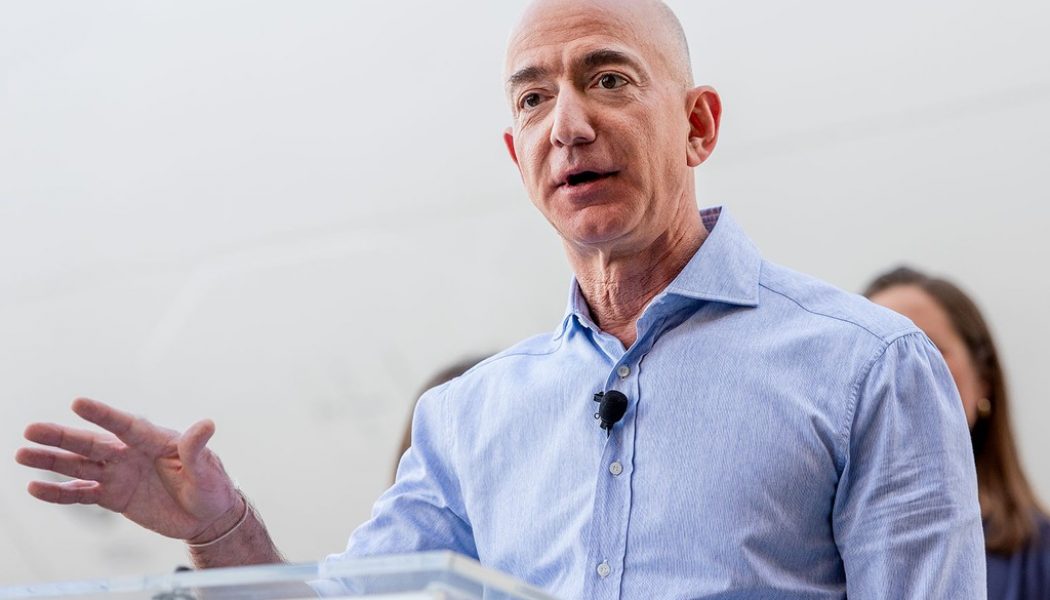
Amazon CEO Jeff Bezos might be the richest person in the world, but he’s also a rookie. Until Wednesday, he had never before been grilled by lawmakers on Capitol Hill. That changed today when top executives at the nation’s leading technology companies gathered — at least virtually — for testimony before a House of Representatives antitrust subcommittee. There, Bezos faced blistering questions about whether the e-commerce giant has abused its market power.
“A lot of people want to know when the HBO Max app will be available on your Fire devices,” Congressman Jamie Raskin (D-MD) told Bezos. “I understand negotiations are ongoing but your company is not only asking for financial terms but also for content from Warner Media…. Is it fair to use your gatekeeper status role to promote your position as a competitor in the video streaming market with respect to content?”
The question to Bezos came amidst a hearing that got quite heated at times. Mark Zuckerberg took repeated queries about Facebook’s acquisitions over the years and was presented with emails that lawmakers touted as evidence of the social media giant’s predatory ways. Google CEO Sundar Pichai faced an examination over a range of practices from “stealing content to build [its’] own businesses” (the ongoing suit brought by lyric site Genius was mentioned) to whether Google used “surveillance over web traffic to identify competitive threats.” And Republicans on the antitrust subcommittee were particularly eager to cross-examine the executives over their supposed censorship of conservative viewpoints.
As for Bezos, it took the 56-year-old tech titan nearly two hours to get his first question, an odd delay reportedly because of internet connection troubles. But once the queries finally arrived, Bezos found himself on the defensive over reports that Amazon had used data from third party sellers in its marketplace to launch competing products.
“What I can tell you is that we have a policy against using seller specific data to aid our private label business,” said Bezos. “But I can’t guarantee you that that policy has never been violated.”
Other lawmakers such as Lucy McBath (D-GA) pounced on that remark and then got Bezos to admit that Amazon had at least used aggregate data from third parties for their own competitive products. McBath characterized this as a “loophole” in the company’s policy. The lawmaker also played a recording from one small businesswoman — a textbook seller — who claimed not being able to sell a single book over ten months thanks to Amazon’s practices. This woman couldn’t get an explanation.
Bezos struggled for a response.
“I’m surprised by that,” he said. “It’s not the systematic approach we take, I can assure you. I don’t understand what’s going on in that anecdote because we would love for third party sellers to sell books.”
Eventually, the conversation moved to the launch of HBO Max, and Bezos was confronted with how Amazon has been using its position as both a competitor and gatekeeper — a topic that figures to become more and more significant in the streaming economy.
Just a few days ago, on an earnings call, AT&T CEO John Stankey addressed the difficulty in striking a deal to get the nascent HBO Max on Fire. “Unfortunately, Amazon has taken an approach of treating HBO Max and its customers differently than how they’ve chosen to treat other services and their customers,” said Stankey (never mind the lack of imagination the AT&T executive once showed during the Time Warner merger trial).
“I predict our companies will come to an agreement,” said Bezos today.
“is it ok to negotiate not just for financial terms to be a part of your Fire unit but also to also try to extract in that negotiation content from them?” pursued Raskin.
Bezos said he was ignorant about the details but also characterized these ongoing negotiations as “normal” as well as a “fundamental” way that business works.
“Do you see that to observers that would look like a structural conflict of interest?” asked Raskin. “You’re using your control over access to people’s living rooms, essentially, you’re using that in order to obtain leverage in terms of getting creative content you wouldn’t otherwise. You are essentially converting power in one domain to another where it doesn’t belong.”
Responded Bezos, “I should offer to get you information because I’m not familiar enough with this and I could imagine there would be scenarios where it would be inappropriate and I could imagine scenarios where it would be very normal business and very appropriate.”
This article originally appeared in THR.com.










